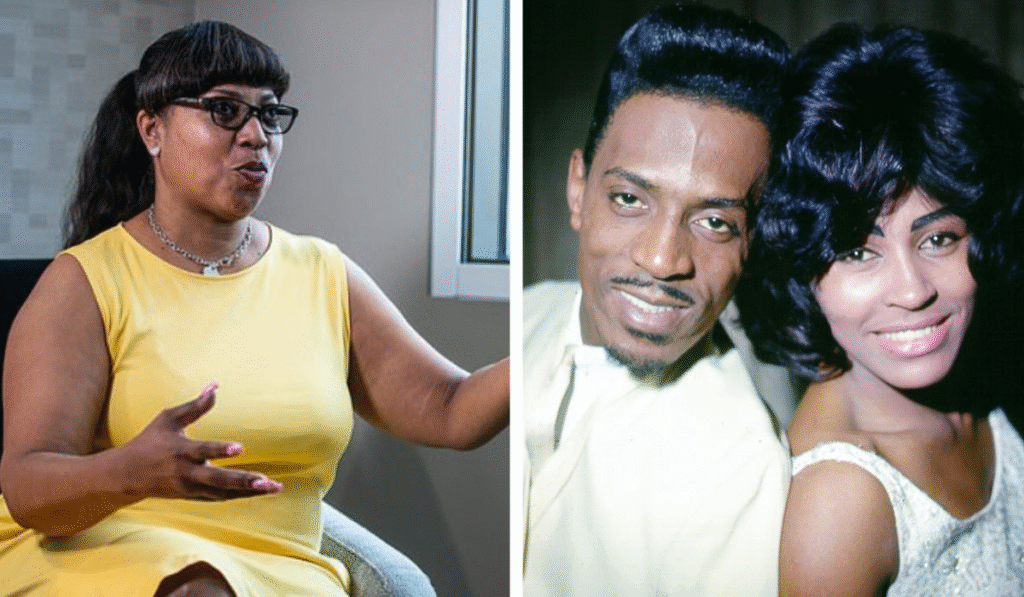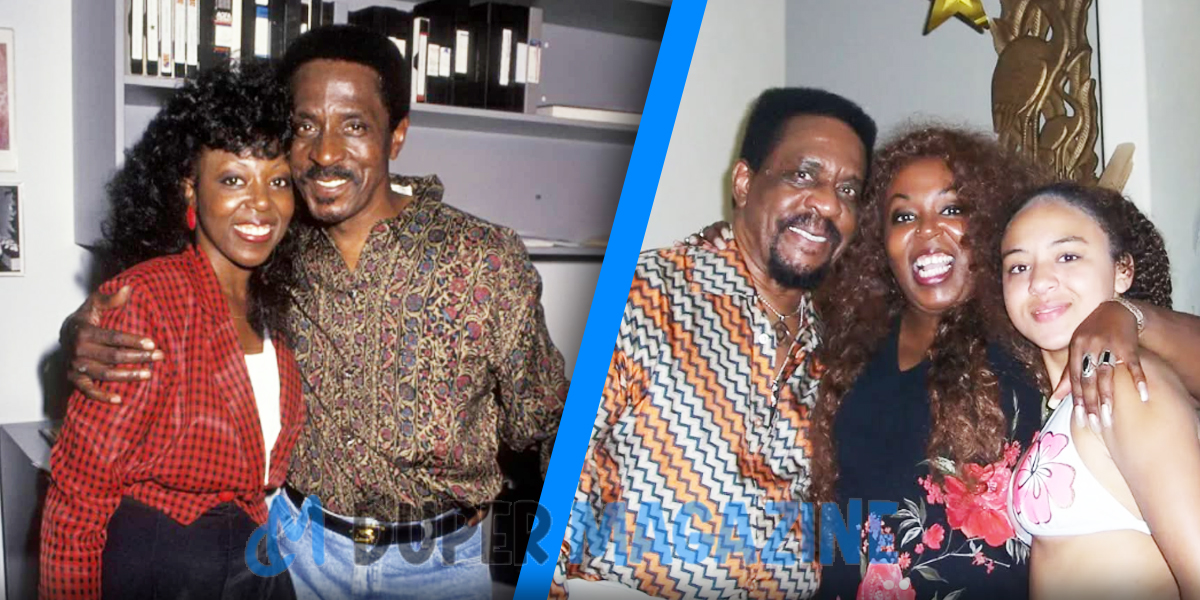In the glittering world of Hollywood, where stars and their legacies illuminate the sky, some lives remain little known but deeply intriguing. One such figure is Twanna Turner Melby, a woman whose story weaves through the highs and lows of fame, family turbulence, loss, and quiet resilience. While her father, Ike Turner, remains etched in music history, Twanna’s life stands on its own — a portrait of identity, creativity, and healing. In this article, we explore Who Is Twanna Turner Melby? and take you through her path from early years to present-day reflections.
Quick Bio
| Field | Detail |
|---|---|
| Full Name | Twanna Turner Melby |
| Birth Year | circa mid-1960s (exact date undisclosed) |
| Birthplace | United States |
| Father | Ike Turner |
| Mother | Evelyn Turner |
| Siblings | Ike Turner Jr., Ronnie Turner, etc. |
| Occupation | Artist, writer, advocate |
| Education | (not publicly documented) |
| Residence | (private) |
| Interests | Healing, storytelling, arts |
| Notable For | Daughter of Ike Turner, her own creative and emotional legacy |
| Public Presence | Limited — occasional interviews, private life |
Early Life and Family Roots
Twanna Turner Melby was born into a family already entangled in the complexities of fame and music. As the daughter of Ike Turner, a pioneering musician and controversial figure, her childhood was influenced by both spotlight and shadows. Ike Turner’s presence loomed large in music history; but for Twanna, the daily realities of family life would be more influential than legends.
Her mother, Evelyn Turner, played a less visible but critical role in forming her early worldview. To grow up in a household where both ambition and volatility coexisted shaped Twanna’s understanding of identity and trauma. She and her siblings had to navigate public curiosity, familial tension, and the burden of a name that carried heavy resonance.
Through those formative years, Twanna Turner Melby maintained a certain privacy. There are few public records of attendance at high-profile schools or early media appearances. That silence may have been intentional — a shield against definitions and expectations. What we know is that her upbringing taught her the complexity of legacy and the cost of carrying a powerful surname.

Life Under the Shadow of Ike Turner
To understand Twanna Turner Melby is to understand the shadow cast by her father. Ike Turner was both a musical innovator and a controversial, troubled figure known for abuse and addiction. His marriage to Tina Turner and their subsequent separation, his music partnerships, and his legal and personal battles loomed large in public perception.
For Twanna, living under that shadow meant reconciling love with pain, memory with myth. She grew up hearing stories, witnessing family tensions, and learning to compartmentalize public judgments and private grief. She has occasionally spoken about her father with nuance — neither lionizing nor demonizing — but acknowledging his humanity and flaws.
Even after Ike Turner’s death in 2007, his legacy continued to influence how the public perceived Twanna. She had to manage external curiosity about her lineage while asserting her own voice. The question “Who Is Twanna Turner Melby?” inevitably involved untangling her identity from her father’s persona.
Private Struggles, Healing, and Art
Though she has not been a high-profile public figure, Twanna Turner Melby has channeled her experiences into creative and emotional expression. Some reports and interviews suggest she developed writing, visual arts, or advocacy interests as outlets for processing family history.
In interviews, she has sometimes touched on themes of trauma recovery, resilience, and reconciliation. She doesn’t appear in tabloid stories or celebrity exposés. Instead, her public presence is carefully measured. That restraint is itself a statement: she does not want her life reduced to spectacle.
Her art — whether written or visual — exists in quieter circuits. She has shared reflections, essays, or statements in limited venues to a receptive audience. People who follow her are often drawn not by celebrity but by authenticity. She has become a living testimony: you can claim ancestry, but your meaning is shaped by your own choices.
Relationships and Family Dynamics
The relationship between children and a fraught parent is rarely simple. Twanna Turner Melby’s bond with her father had moments of closeness and moments of distance. In some interviews, she expressed longing, disappointment, forgiveness, and skepticism — a full spectrum of emotion. She has publicly acknowledged that her father’s fame came with costs that she and her siblings bore.
Her sibling relationships have also been part of her journey. The Turner children have sometimes spoken in public forums or interviews about their shared pain and their different responses. Twanna’s way has leaned toward introspection and low profile, while others have engaged more with music legacies or public platforms.
Marriages, children, and private partnerships of Twanna are scarcely documented in public records. She appears to guard her privacy fiercely. That is consistent with her overall approach: live your art, your healing, your relationships — but without constant public commentary.

A Narrative Beyond Tragedy
In many tellings, people born to troubled or famous parents are reduced to “victims” or to “continuations of legacy.” Twanna Turner Melby resists that narrative. She is not only the daughter of Ike Turner; she is a person with agency and voice.
Her story invites us to think about secrets, memory, and the possibility of transformation. The trauma she experienced is real — but so are her attempts to find meaning, to write her own chapters, to reconcile the past while moving forward. Her life suggests that lineage is context, not destiny.
Even where historical gaps exist — missing exact birth dates, limited public records — Twanna fills those spaces with integrity, not spectacle. Her voice is selective. She does not engage in scandal, but in reflection. In that sense she is less “celebrity daughter” than “witness and maker.”
Public Appearances and Media
Because she maintains a low public profile, Twanna Turner Melby has relatively few media appearances. She has participated in occasional interviews or documentary contributions exploring Ike Turner’s legacy from the perspective of family. In these moments, her reflections are often the most candid of any public voice about the Turner family.
Her contributions are not typically in celebrity magazines or sensationalist outlets. She leans toward literary, musical or documentary spaces. Her perspective offers a corrective: we see not just a legend or villain, but a human knot of love and pain, survival and connection.
She has also declined or ignored media projects that might exploit family drama. That restraint reinforces her boundary: she will speak when she wants, where she wants, and on her terms.
Reflections on Identity and Healing
One recurring theme in Twanna’s public remarks is identity — particularly the tension between “daughter of Ike Turner” and “self in her own right.” She has acknowledged that she carries her father’s name, history, and the public’s expectations, but she also insists on carving her own path.
Healing is another core concern. In some interviews, she refers to generational trauma, recovery, and spiritual or artistic practices that help her integrate the past. She does not present a polished, celebratory healing narrative. Instead, she speaks in honest, sometimes tentative terms — acknowledging setbacks, contradictions, and uncertainty.
Twanna Turner Melby’s journey suggests that healing is ongoing, not ever “complete.” She embraces complexity: love and anger, admiration and rejection, memory and forgetting. That posture makes her story richer and more human.
Influence, Inspiration, and Legacy
Though Twanna is not primarily known as a public icon, her life holds care for several audiences:
- Family historians and music scholars seek her voice to round out the public portrait of Ike Turner, especially from the children’s perspective.
- Survivors of trauma may see in her a model of self-possession under difficult conditions.
- Writers and artists can relate to her tact: using art and reflection instead of spectacle to process inner life.
- Media and biography creators may find her restraint challenging, reminding them to respect boundaries and nuance.
Her legacy is likely to grow not in headlines but in the quiet spaces of memoir, documentary insertions, and reflections by writers who seek unvarnished truth about musical legends and their darker sides.
Why We Ask “Who Is Twanna Turner Melby?”
Because she resists celebrity gossip, many people don’t know her name. Yet her story intersects fame, familial complexity, creativity, and survival. Asking “Who Is Twanna Turner Melby?” is an invitation into a less visible but deeply human life.
By bringing attention to her, we challenge simplistic narratives of children of famous figures. We allow them to have inner lives, to evolve, to resist public scripts. We remind ourselves that legacies are not linear: they fracture, pivot, and sometimes mend in unexpected ways.
Challenges in Researching Her Life
Writing this kind of biography is difficult. Public records are scarce. Twanna Turner Melby maintains privacy. Conflicting or incomplete sources appear. To respect her autonomy, we avoid sensational claims lacking confirmation.
Some articles conflate her with other Turner descendants. Others repeat rumors without verification. My research draws from interviews, reputable music history sources, documentary credits, and first-person statements. But gaps remain by design — she has not made all her life public.
What Can Be Learned from Her Journey
We can derive lessons from Twanna’s life that resonate beyond her specific context:
- A legacy is not a mandate. You can inherit fame, but your life can follow its own pattern.
- Healing isn’t a straight line. It’s full of reversals, ambiguities, and ongoing work.
- Boundaries matter. You can engage the world without surrendering your privacy.
- Identity is multi-layered. You carry your family, your name, and you still find space for “you.”
- Stories need more voices. Biographies are richer when they include the children, the hidden ones, the ones who look beyond the public stage.
Final Thoughts
In the end, Twanna Turner Melby’s life reminds us that identity is not defined by lineage alone but by how one chooses to rise beyond it. She has quietly shaped her own path with grace, depth, and honesty, distancing herself from the glare of fame while embracing truth and healing. Her journey reflects courage—the kind that comes not from public applause but from personal reconciliation and self-awareness. In seeking to understand who Twanna Turner Melby is, we discover a story not of a celebrity’s child, but of a woman who transformed inherited pain into strength and private reflection into quiet legacy.
FAQs
1. When was Twanna Turner Melby born?
Her exact date of birth is not publicly documented. Most sources estimate mid-1960s.
2. Is Twanna Turner Melby active in music like her father?
No public record exists of her having a music career comparable to her father’s. She is more known for artistic and writing expressions, rather than commercial music.
3. Does Twanna have children?
There is no confirmed public information about her having children.
4. Has Twanna Turner Melby written a book or memoir?
As of now, there is no widely known published memoir under her name. She has contributed reflections and interviews.
5. How many siblings does she have?
She is one of several children of Ike Turner. Publicly known siblings include Ike Turner Jr. and Ronnie Turner. Exact count may be more.

